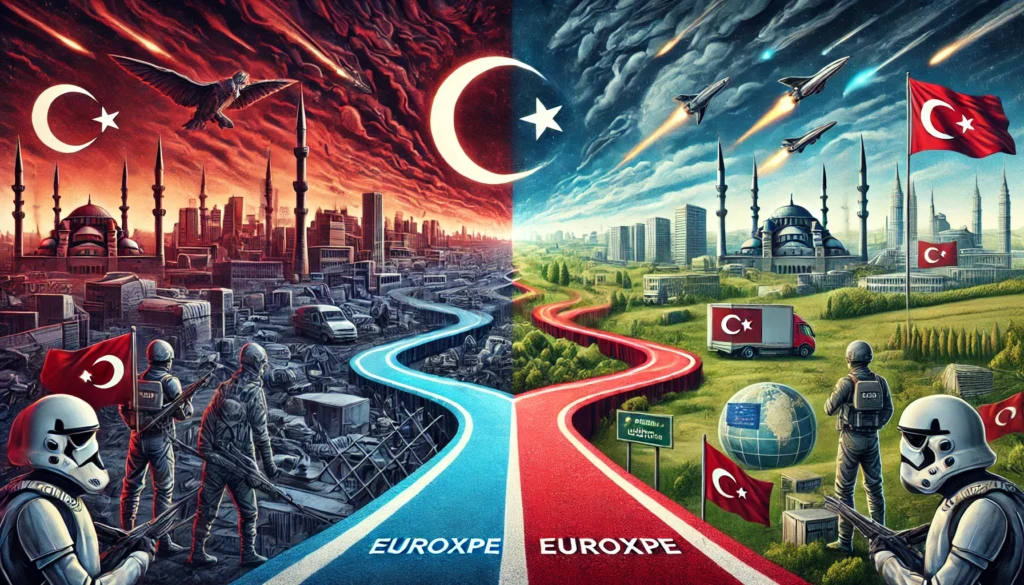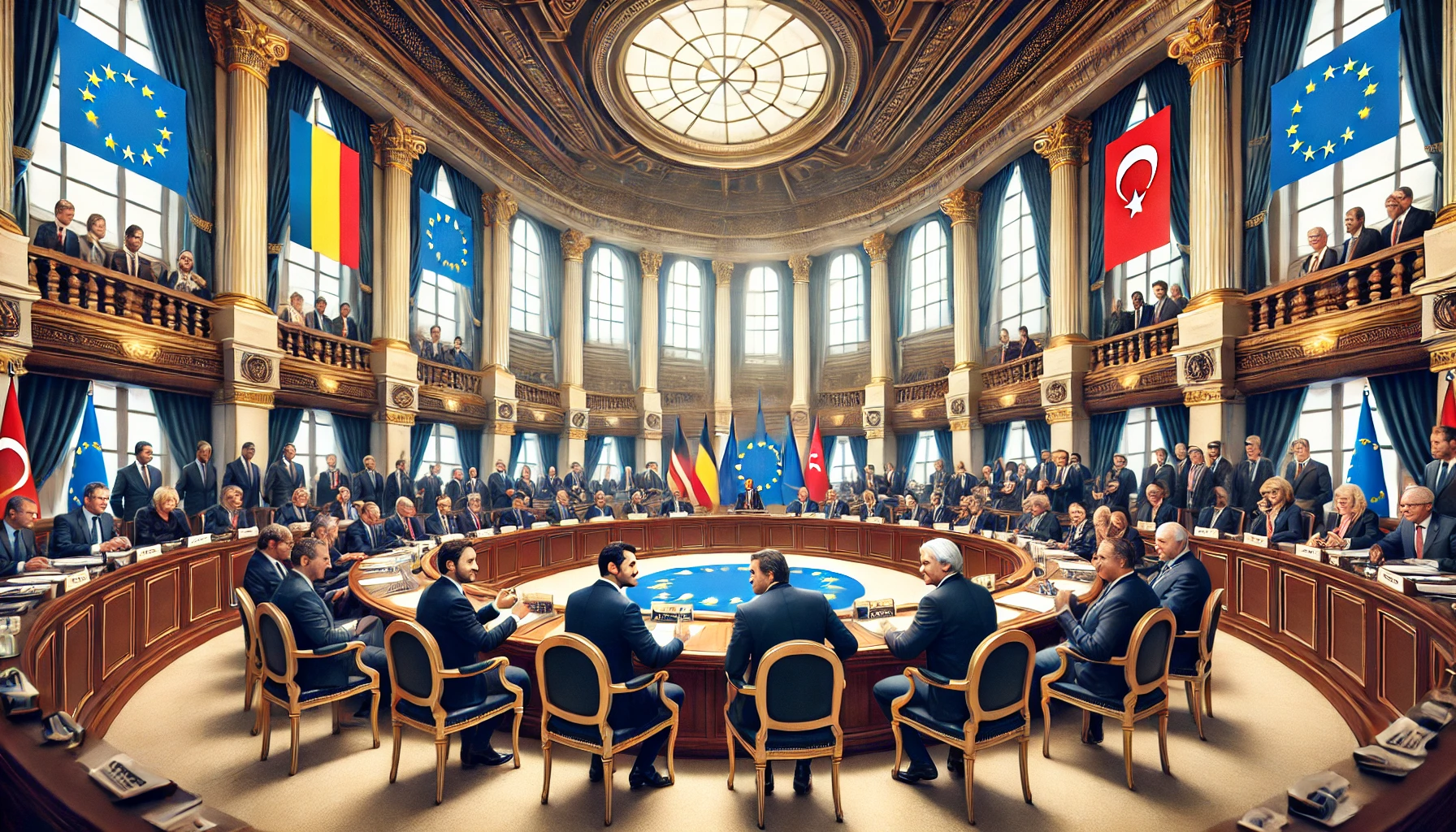Turkey’s socio-political landscape is once again under scrutiny following the issuance of an arrest warrant for Albanian-Turkish YouTuber Diamond Tema, known for his provocative discussions on religion and philosophy. Tema’s criticisms of Turkey’s political and religious dynamics have sparked a significant debate, underscoring the broader issues of secularism and freedom of speech in the country.
With over 870,000 subscribers, Tema has been an outspoken critic of Turkish President Recep Tayyip Erdoğan and his ruling party’s alleged Islamist leanings. His comments led to charges of “publicly inciting the public to hatred and hostility,” particularly due to remarks about the Prophet Muhammad. Fearing for his safety, Tema announced his departure from Turkey amidst threats of arrest and violence. This incident brings to light the broader struggle for freedom of expression in a country with deep-seated political and religious tensions.
Ulan asıl mağdur olması gereken ben iken nasıl oluyor da bana yürütülen operasyondan şeriatçılar mağduriyet kasabiliyor? Saldıran sizsiniz, hapse attırmak-öldürmek isteyen, iftira atan sizsiniz, ama zalim biziz öyle mi? pic.twitter.com/IRl6pGQFLx
— Diamond Tema (@diamond_tema) June 17, 2024
Atatürk’s Vision and Modern Realities
For over 55 years, Turkey has predominantly been governed by right-wing parties, significantly shaping its socio-political fabric. Mustafa Kemal Atatürk, the founder of modern Turkey, envisioned a nation rooted in secularism, education, and scientific advancement. His reforms were designed to separate religion from state affairs, fostering a progressive, secular nation. However, recent decades have seen a shift towards conservatism, with increasing influence of religious ideologies on governance.
Atatürk’s vision aimed to create a society where scientific inquiry and meritocracy took precedence. He believed that separating religion from the state was essential for modernising Turkey. This vision is now under threat as the country grapples with the resurgence of religious conservatism, which has impacted various aspects of life, including politics, education, and human rights.
Turkic Identity and Religious Registration
The Turkic ethnic group is a large and diverse population with countries and communities spread across four continents. Historically, the Turkic people practised Tengrism, a shamanistic and animistic religion that centred on the worship of Tengri, the sky god, and revered nature, ancestors, and particularly maternal figures. Over time, the religious landscape of the Turkic people has evolved, especially with the spread of Islam.
In modern Turkey, it is common for newborns to be automatically registered with the religion of their family, often Islam, without the child having the option to choose their faith later. This policy overlooks the diverse religious beliefs within the country, where many citizens identify as Christian, Atheist, or other faiths. Despite this, the visible presence of religious practices is often limited, with many mosques remaining sparsely attended. This suggests a disparity between official religious affiliations and actual beliefs, likely influenced by social and political pressures.
Many Turkish citizens do not practice Islam in a traditional sense, and the secular lifestyle is prevalent in urban areas. However, political pressures often force individuals to conform outwardly to avoid social and legal repercussions. The lack of freedom to choose one’s religion is a significant issue, contributing to the tension between secular and conservative forces in the country.
Alignment with Arab Countries
For the past 55 years, Turkey has aligned itself more closely with Arab countries rather than fostering strong ties with other Turkic nations. This alignment has been driven by the policies of successive right-wing governments. Consequently, many citizens from Turkic countries do not see Turkey as representing the Turkic identity. This foreign policy direction has further distanced Turkey from its Turkic roots, contrasting sharply with Atatürk’s vision of a nation proud of its Turkic heritage and secular principles.
The Broader Implications and International Comparisons
The arrest warrant for Tema is not an isolated incident. It highlights the broader challenges faced by advocates of secularism and freedom of expression in Turkey. Comparatively, countries within the European Union, such as Poland and Italy, also grapple with balancing modern secular values and traditional religious beliefs. In Poland, for instance, the government’s close ties with the Catholic Church have led to significant political and social debates. Similarly, Italy’s historical relationship with the Vatican has influenced its political landscape. These comparisons underscore that while Turkey’s situation is unique, the struggle between secularism and religious influence is a common theme in many countries.
Public Opinion and Social Media Impact
Support for Tema on social media, illustrated by the hashtag “#DiamondTemaYalnızDeğildir” (#DiamondTemaIsNotAlone), reflects the public’s concern over these issues. Thousands of Turkish citizens have expressed solidarity with Tema, advocating for secularism and freedom of speech. This public outcry reveals a broader desire for a return to Atatürk’s vision of a progressive, secular Turkey.
Recent surveys indicate that while a significant portion of the population supports secular governance, actual interest in practising Islam is relatively low, with estimates suggesting that only 3-5% of the population are devoutly religious. This discrepancy highlights the influence of political and social pressures rather than genuine religious adherence.
The Way Forward
The case of Diamond Tema serves as a microcosm of the larger battle between secularism and religious conservatism in Turkey. As the nation navigates these challenges, the outcome will significantly impact its future, shaping its social, economic, and political landscape. There is potential for collaboration between progressive movements in Turkey and left-wing parties in Europe to promote secularism and human rights, offering a united front against the rise of religious conservatism.
Conclusion
Turkey stands at a crossroads. The struggle between secularism and religious conservatism will define its future. The international community and Turkey’s citizens alike are watching closely, hoping for a resolution that honours the country’s rich history of secularism and modern progress. The case of Diamond Tema highlights the urgent need for a renewed commitment to the principles of secularism, freedom of speech, and human rights.







[…] Turkey at a Crossroads: The Arrest of Diamond Tema and the Struggle for Secularism Shares: […]